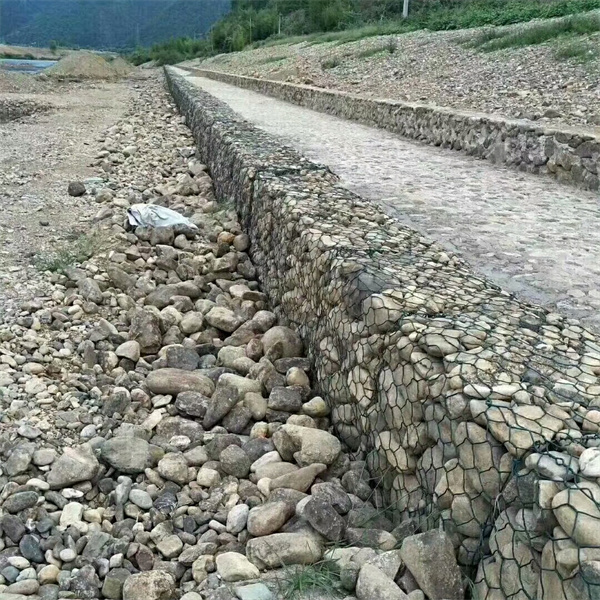Nov . 10, 2024 05:47 Back to list
Gabion Stone Manufacturing Facility and Its Role in Modern Landscaping Solutions
The Importance of Gabion Stone Factories in Modern Construction
In recent years, the construction and landscaping industries have increasingly turned to innovative materials and methods to ensure durability, sustainability, and aesthetic appeal. One such solution is the use of gabions—wire mesh baskets filled with stones. Gabion stone factories play a crucial role in producing these robust structures, which serve a variety of functions in civil engineering and landscaping.
What Are Gabions?
Gabions are traditionally rectangular or cylindrical cages made of durable wire mesh, filled with rocks or other materials. They have been used since ancient times for erosion control, retaining walls, and riverbank stabilization. Their versatility has made them a staple in modern construction and environmental management projects. The rocks used in gabions can vary from smooth river stones to rough granite, depending on the application and desired aesthetics.
The Role of Gabion Stone Factories
Gabion stone factories are specialized establishments that produce the necessary components for creating gabion structures. These factories are equipped with machinery to size, shape, and sort stones, ensuring they meet specific engineering standards. The factories also manufacture the wire mesh cages in various sizes and configurations, catering to different construction requirements.
One of the key advantages of gabion stone factories is their ability to provide customizable solutions. Clients can specify the dimensions of the gabions, the type of material used, and even the stone color and texture. This level of customization allows for a more integrated design that can harmonize with the surrounding environment, making gabions not only functional but also visually appealing.
Sustainability and Environmental Impact
The production of gabions uses natural materials, making them an environmentally friendly option compared to traditional concrete structures. Gabion stone factories often emphasize sustainability by sourcing local stones and materials, which reduces transportation costs and carbon footprints. Additionally, the use of gabions promotes biodiversity. When used in landscaping, they can provide habitats for various plants and animals.
gabion stone factory

Moreover, gabions facilitate drainage and are excellent for controlling soil erosion. Their porous nature allows water to flow freely while stabilizing soil, making them ideal for riverbanks, slopes, and construction sites that are prone to erosion. This capability to integrate with the natural environment further underscores the importance of gabion stone factories in promoting eco-friendly construction practices.
Applications of Gabions
Gabions have a wide range of applications in both urban and rural settings. In civil engineering, they are often employed for building retaining walls, which help manage soil pressure and prevent landslides. They can also be used for noise barriers along highways, effectively absorbing sound while blending seamlessly with the surrounding landscape.
In landscaping, gabions are used to create decorative features such as fences, garden borders, and seating areas. By stacking gabions creatively, landscape architects can design unique outdoor spaces that are both functional and aesthetically pleasing. Furthermore, their use in pedestrian paths and park benches promotes sustainable outdoor environments.
Challenges and Considerations
Despite the numerous advantages of gabions, there are challenges associated with their use. Factors such as material selection, design integrity, and proper installation are critical to ensuring the longevity and effectiveness of gabion structures. Furthermore, the quality of stones is paramount; poorly selected materials can lead to structural weaknesses. Hence, gabion stone factories must adhere to stringent quality control processes to ensure their products meet industry standards.
Conclusion
Gabion stone factories are integral to the modern construction landscape, offering durable, sustainable, and versatile solutions for a variety of applications. Their role in producing high-quality gabion structures not only addresses practical engineering challenges but also supports eco-friendly practices essential for the current era. As the demand for green construction methods rises, gabion stone factories will undoubtedly continue to play a pivotal role in shaping our built environments while harmonizing with nature. By marrying functionality with aesthetic value, gabions are more than just stones in a cage—they are a testament to innovative engineering and sustainable design.
-
The Role of Galvanized Gabion Mesh in Riverbank Protection
NewsJun.26,2025
-
The Role of Gabion Basket Raised Bed in Sustainable Gardening
NewsJun.26,2025
-
Quality Assurance of Wire Mesh Gabion Baskets
NewsJun.26,2025
-
Installation Guide for Welded Gabion Box
NewsJun.26,2025
-
How to Choose the Right Gabion Box
NewsJun.26,2025
-
Different Types of Gabion Wire Mesh
NewsJun.26,2025
-
Why PVC Coated Gabion Mattress Is the Best Solution for Long-Term Erosion Control
NewsMay.23,2025






